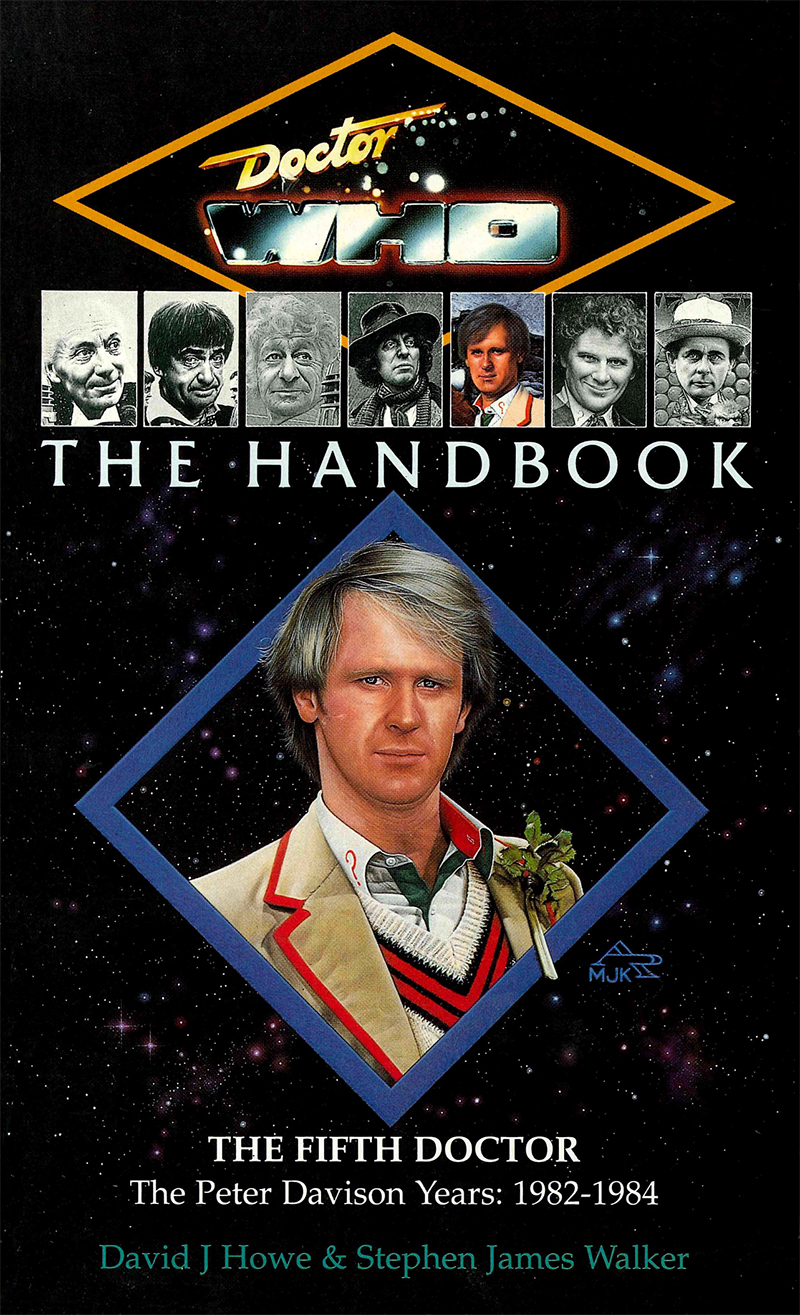 Story: Using both new and archival interview material and their own analysis, author David J. Howe and Stephen James Walker analyze the three-year reign of Peter Davison as TV’s fifth Doctor Who, a time of upheaval for the show’s schedule, its traditions, and its behind-the-scenes crew.
Story: Using both new and archival interview material and their own analysis, author David J. Howe and Stephen James Walker analyze the three-year reign of Peter Davison as TV’s fifth Doctor Who, a time of upheaval for the show’s schedule, its traditions, and its behind-the-scenes crew.
Review: This volume of the Handbook was one of the last to be released in that series, and maybe it’s easy to see why. The books on the first, second and sixth Doctors dished some interesting dirt about the show’s production team and offstage drama, but by comparison, Peter Davison’s time on the show – as popular as it was – was nearly uneventful by comparison. Some would say the same of Davison’s portrayal, but interestingly enough, the man himself addresses that in interviews here, pointing out that everyone involved with the series was so nervous about how to follow up on Tom Baker’s reign, the decision was taken from the top down to write and portray the Doctor in an almost non-committal, non-character-specific way. That decision alone, and certainly not any lack of acting muscle on Davison’s part (who had already won over the public during his stint on All Creatures Great And Small by this time), is to blame for this era of the show, and its leading man, being labeled by many in hindsight as “bland.”
The episode-specific focus for this book is on the gestation and production of The Five Doctors. The truth of the matter is, for such a “bland” period of the show’s history, there are a number of episodes which could have been covered in this section – Earthshock, Caves Of Androzani, Resurrection Of The Daleks, Enlightenment, to name an especially interesting few – but, for better or worse, it’s The Five Doctors which will probably go down as the Davison era’s highlight. This part of the book doesn’t disappoint, revealing memos and story breakdowns by the late Robert Holmes, who was the production team’s first choice to write the 20th anniversary special. It’s interesting to see that many of the ideas that Holmes worked up before deciding to give up the ghost on writing the script would up working their way into The Two Doctors a couple of seasons later. In the end, Holmes passed on the assignment, not wanting to bother with a script that had a pre-programmed number of elements (five Doctors, one of whom wouldn’t be played by the original actor, numerous companions and villains already determined by the production team, etc.), and the assignment fell to Terrance Dicks. Ironically, interviews with Dicks reveal that some of the elements of his script were intended as tributes to the work of his old friend Robert Holmes. The last-minute decision by Tom Baker to not appear, and the scramble to do something to provide some glimpse of the fourth Doctor for fans who still remembered him fondly, is also covered.
In the end, “The Fifth Doctor Handbook” reminds me of how much I really enjoyed Peter Davison’s time in the TARDIS. It was an era of increasingly experimental storytelling, told through the talents of actors who delivered the goods on screen (albeit in a style that’s now recognized as somewhat stagey), with the resources of a behind-the-scenes crew growing increasingly confident with their first steps into the early digital era. Even the much-maligned John Nathan-Turner has much to be proud of with Davison’s three years as the Time Lord, and this book does a very good job of helping to set the record straight. Bland? Anything but.
Year: 1996
Author: David J. Howe
Publisher: Virgin
Pages: 256
